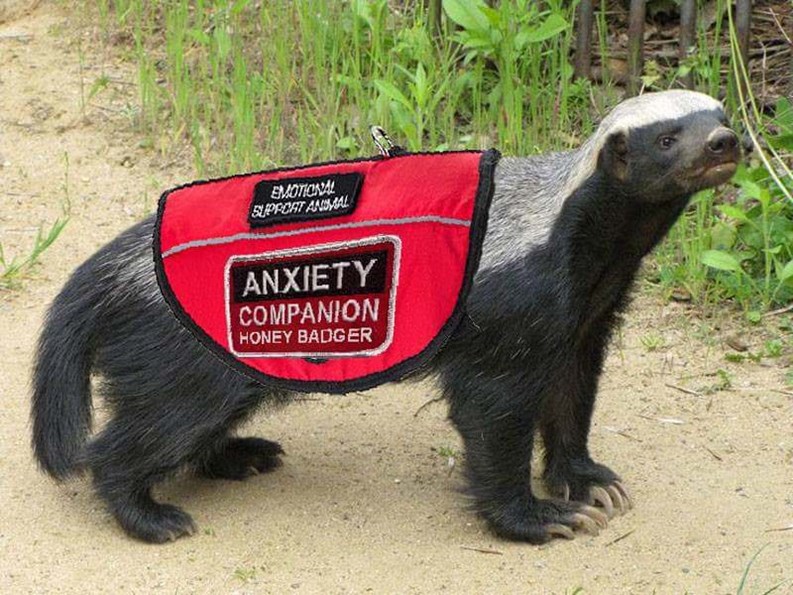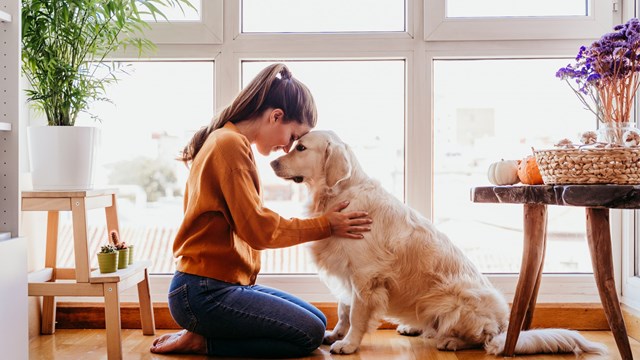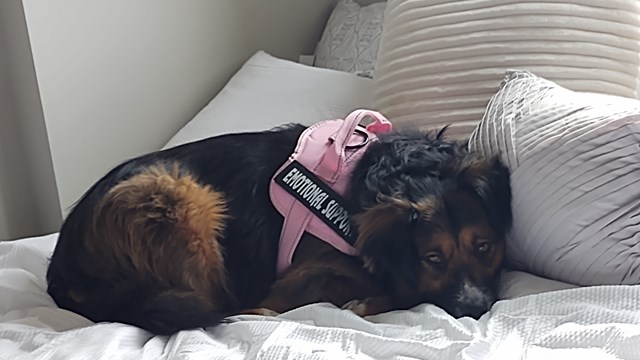Co-ops
are infamous for the sometimes-byzantine nature of their rules,
regulations and prohibitions. This is particularly true when it comes
to pet or no-pet policies. Some buildings restrict pets altogether,
others permit only home-bound pets such as cats or fish. There may be
outright bans on exotic pets like lizards, snakes and large biting
invertebrates, such as tarantulas. Some permit dogs of certain
breeds, sizes, or temperaments, but not others. Then there is the
rare co-op with no restrictions at all on non-human occupancy. That
all may be about to change.
In June of 2018, the New York City Human Rights Commission published a 146-page guidance entitled “Legal Enforcement Guidance on Discrimination of the Basis of Disability.” The issue of both service and emotional support animals was reviewed in the document.
Service vs. Emotional Support Animals
Service animals are defined as animals that assist in everyday living. The best example would be a seeing-eye dog. An emotional support animal, on the other hand, is defined as an animal (typically a dog or cat, though this can include other species) that provides a therapeutic benefit to its owner through companionship. The guidance issued by the New York City Human Rights Commission (NYCHRC) states the following:
“Housing providers are required to reasonably accommodate persons with disabilities who rely on service animals or emotional support animals by providing exceptions to 'no pet' or 'no dog' policies. A service animal is an animal that does work or performs tasks for an individual with a disability. For example, a dog that guides an individual with a visual impairment is a service animal. An emotional support animal is an animal that provides emotional support or other assistance that ameliorates the symptoms of a disability. If housing providers,” (and that includes co-ops under their proprietary leases -Ed.) “have ‘no-pets’ policies, charge pet fees, or have breed, weight, or size restrictions on pets, they must make exceptions to these policies in situations in which a resident requests to keep a service animal or emotional support animal in their housing unit due to a disability, unless doing so would cause the housing provider an undue hardship.”
More specifically, and perhaps more ominously, the guidance elaborates in an explanatory footnote that, “Unlike under state law, under the NYCHRC, a person need only show that the presence of the emotional support animal in some way alleviates symptoms of their disability in order to justify their request for the accommodation. They need not show that the animal is ‘necessary’ to their use and enjoyment of the residential unit.” That opens a pretty big door for almost anyone with a desire for a pet and a medical professional willing to support their claim of emotional necessity for one.
Cooperative Dialogue
The guidance continues with a discussion of potential incidental damage to both health and safety within the building. “The possibility of potential incidental property damage is rarely an undue hardship. Where a particular animal creates legitimate health or safety concerns, the housing provider and the resident must engage in a cooperative dialogue to determine what other accommodation may be available.”
'Cooperative dialogue' is defined under the law as a “process by which a covered entity and a person entitled to an accommodation, or who may be entitled to an accommodation under the law, engage in good faith in a written or oral dialogue concerning the person's accommodation needs. This potentially creates a situation where a co-op’s policy may be effectively ruled moot, or unenforceable.
Deborah Koplovitz, an attorney specializing in co-op and condo law with Manhattan-based law firm Anderson Kill advises, “In light of the new guidance from the New York City Commission on Human Rights which requires co-ops to engage in a cooperative dialogue with shareholders, co-ops who have already provided a reasonable accommodation to a shareholder whose animal becomes dangerous should first engage in a cooperative dialogue with that shareholder to see if there are methods which could alleviate the danger, such as a muzzle, prior to requiring that the shareholder remove the dog. If an emotional support animal passes away and the disability still exists, the co-op should permit a replacement animal.”
AJ Sidransky is a staff writer at The Cooperator, and a published novelist.










Comments
Leave a Comment